Table of Contents
- Introduction
- Understanding Manufacturing-as-a-Service (MaaS)
- Evolution of Manufacturing: A Historical Perspective
- Challenges and Roadblocks
- Market Analysis and Industry Trends
- MaaS Applications Across Sectors
- Technological Enablers for MaaS
- Future Prospects and Emerging Trends
- Conclusion
- About Goodman Lantern
Introduction

The manufacturing industry is transforming significantly, with innovative technologies and approaches gaining momentum. In recent years, manufacturing-as-a-service (MaaS) has emerged as a breakthrough trend, fundamentally changing how manufacturing businesses operate.
In essence, MaaS offers a flexible and scalable manufacturing solution, allowing businesses to tap into manufacturing capabilities on demand. This approach is revolutionising the industry, eliminating capital investment risks, reducing overhead costs, and providing businesses with greater agility and responsiveness.

This whitepaper explores the modern trends in the manufacturing industry in detail, providing valuable insights and actionable strategies for businesses looking to embrace this trailblazing approach.
We explore the changing face of manufacturing as a service, examining the benefits, challenges, and opportunities this shift brings. We also uncover the latest in manufacturing technology trends and the predictions for the future of this innovative industry.
Understanding Manufacturing-as-
a-Service (MaaS)

MaaS is a business model that allows companies to access on-demand manufacturing services, eliminating the need for large-scale investments in equipment, personnel, and infrastructure.
With MaaS, businesses can access specialised manufacturing capabilities flexibly and cost-effectively, reducing overheads and lead times. The cloud-based infrastructure of MaaS allows for seamless collaboration between the service provider and the client, streamlining the process from design to production.
This model has been gaining popularity as it promotes agility and facilitates innovation, allowing companies to stay ahead of the competition. Today, MaaS is leading manufacturing sector trends, and forward-thinking businesses are reaping the rewards of this disruptive technology.
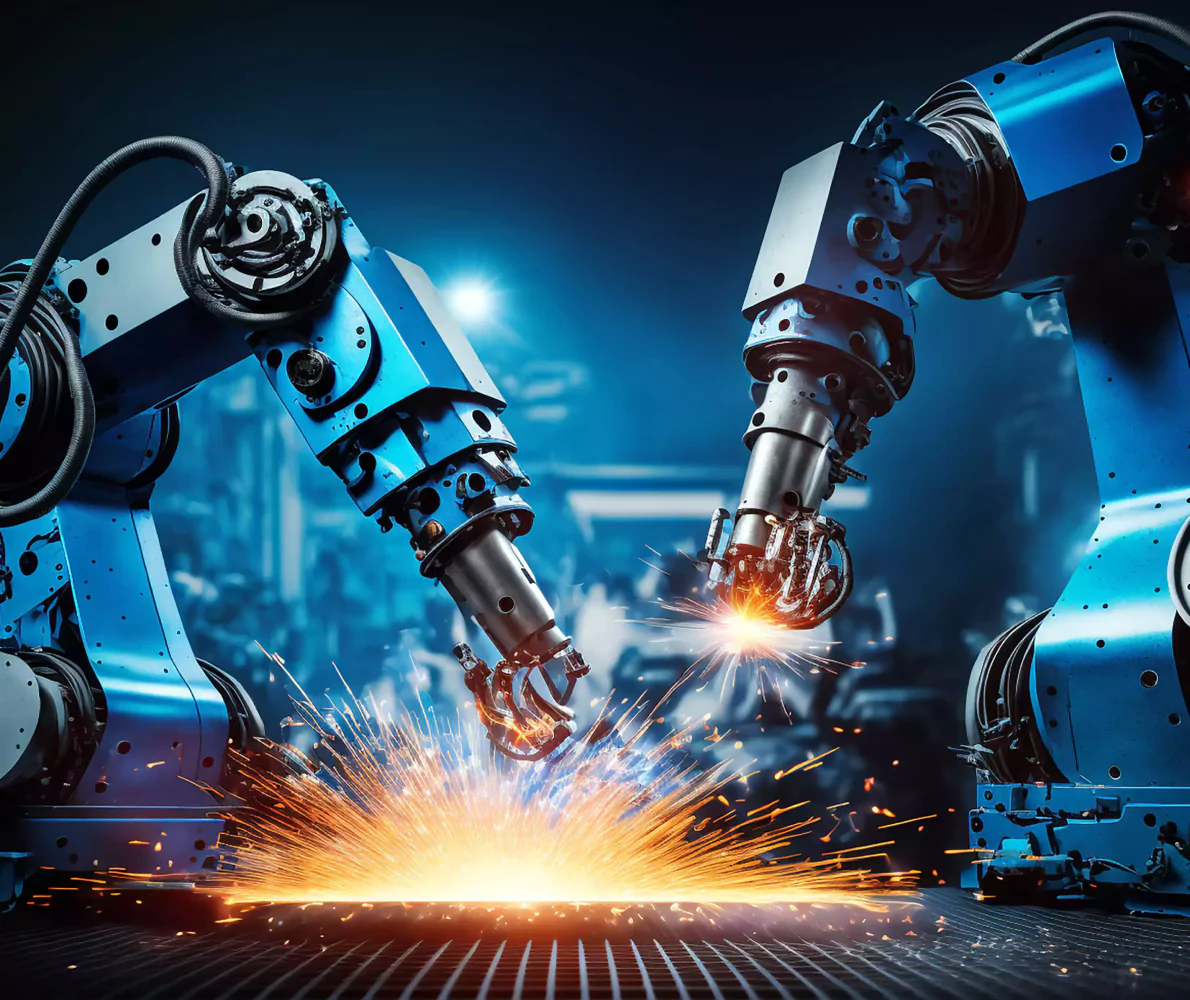
Defining Core Components of MaaS
Modern trends in manufacturing have led to the emergence of MaaS, a business model that provides a fully integrated solution to manufacturing processes. At its core, MaaS is based on three main principles: flexibility, responsiveness, and scalability. MaaS allows customers to focus on their core competencies while outsourcing all or part of their manufacturing process. This innovative model is gaining popularity as it enables quick adaptation to market changes, reduces capital expenditures, and offers access to advanced technologies and expert knowledge in various fields.
Distinctive Features and Characteristics of MaaS
MaaS is a forward-thinking concept that combines manufacturing technology trends with the on-demand economy. Unlike traditional manufacturing, which often involves large upfront investments and long lead times, MaaS uses a pay-per-use model to provide customers with access to facilities and equipment when needed. This flexibility enables manufacturers to shift production to meet changing customer demand, reduce waste, and lower costs. Additionally, MaaS providers typically offer various services, such as design assistance, prototyping, and logistics, to support customers throughout the entire product development lifecycle.
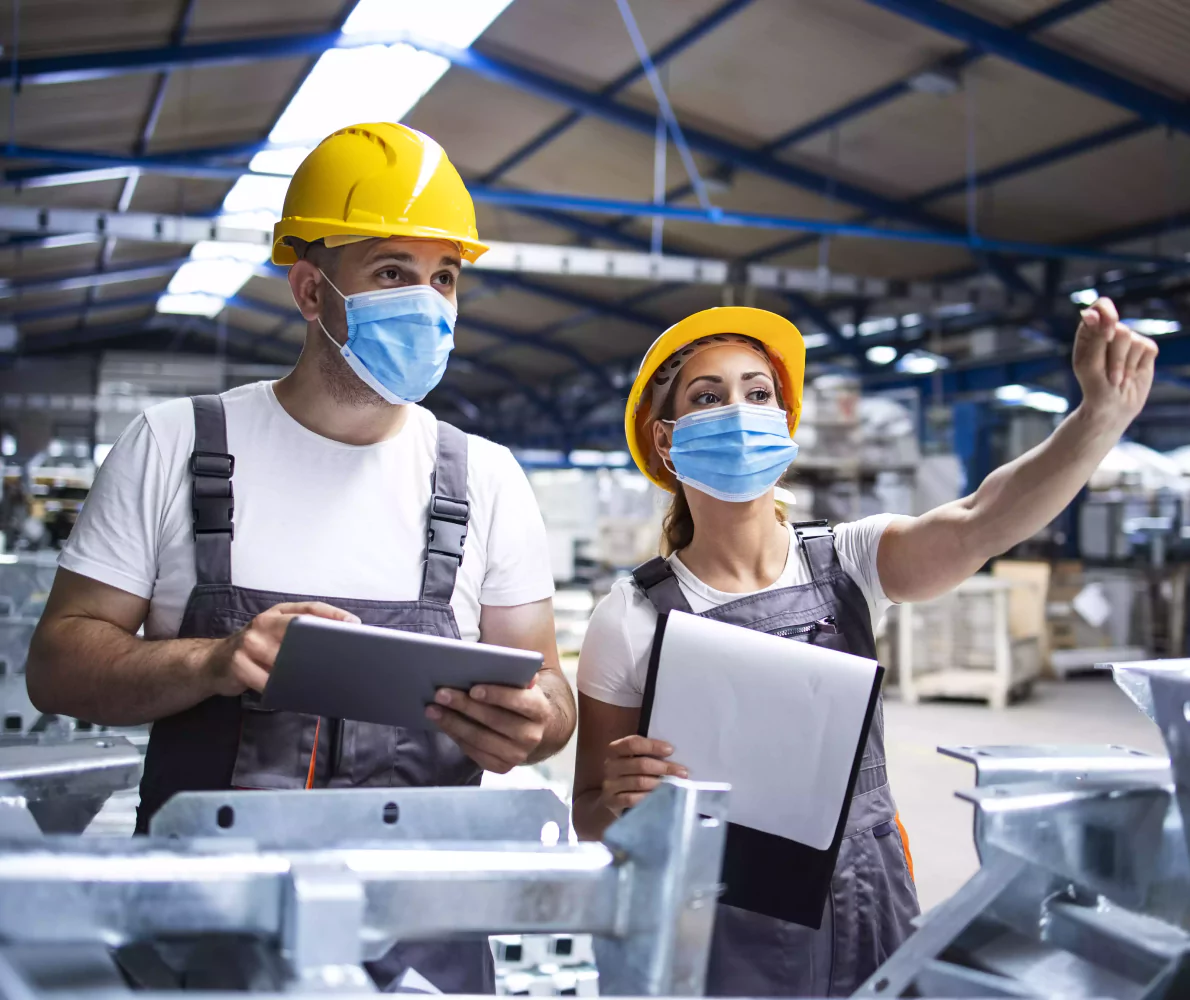
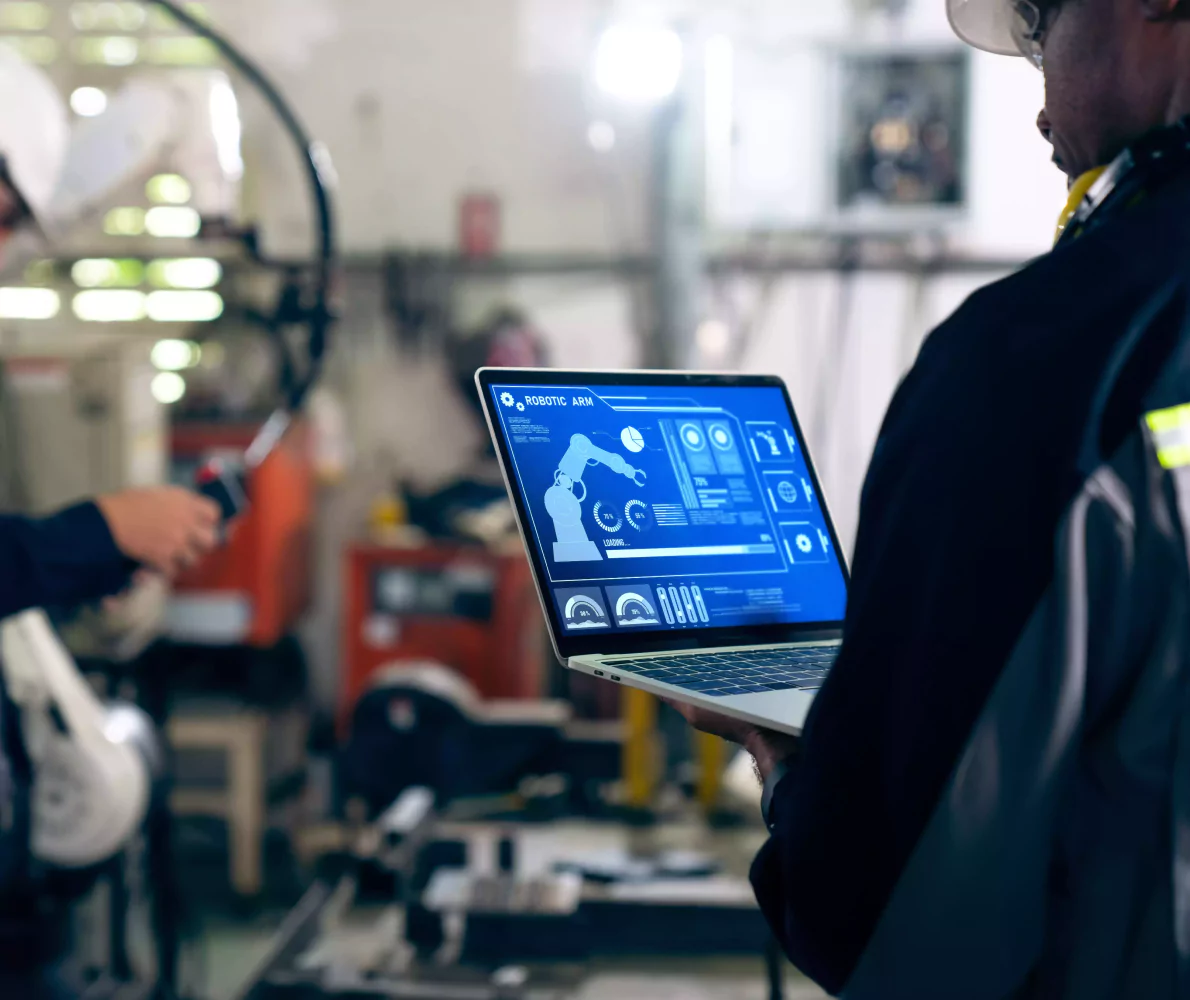
Comparative Analysis with Traditional Manufacturing Models
In today's hyper-competitive manufacturing landscape, businesses can no longer rely on traditional manufacturing models alone. The need for speed, flexibility, and sustainability has given birth to comparative analysis – a strategic approach to evaluating conventional manufacturing methods against innovative alternatives. By comparing the pros and cons of both approaches, businesses can adopt the most effective manufacturing model that aligns with their values, goals, and innovation roadmap.
Real-World Examples Illustrating MaaS Principles
Current trends in the manufacturing industry enable businesses to focus on their core competencies while relying on external manufacturing capabilities to handle the production process. Companies like Xometry offer on-demand manufacturing services that streamline the supply chain and reduce costs. Similarly, Autodesk's Fusion 360 platform provides cloud-based collaboration capabilities that enable design and production to occur simultaneously, speeding up the manufacturing process.
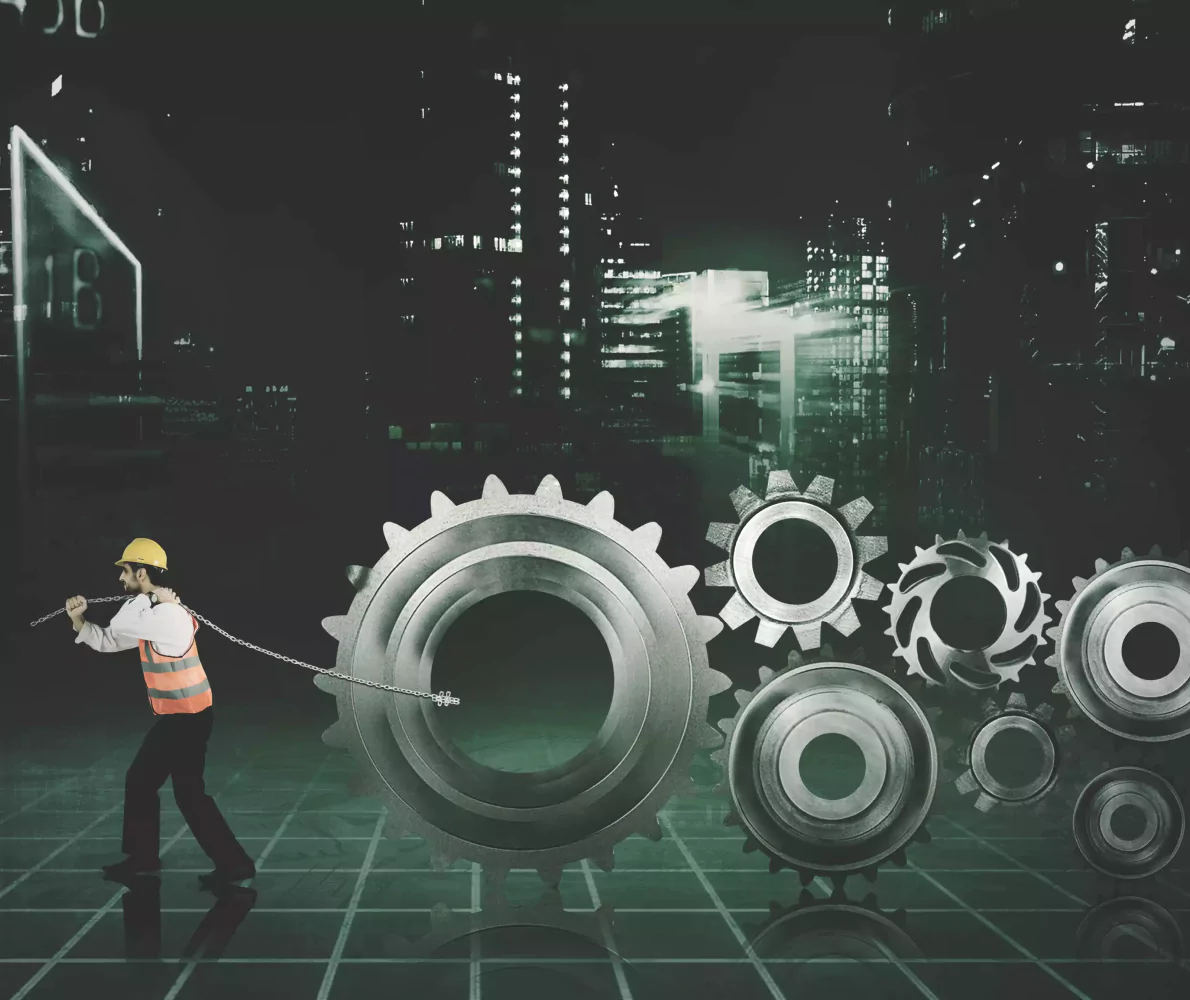
Evolution of Manufacturing:
A Historical Perspective

The manufacturing industry has undergone a remarkable transformation over the years, with manufacturing sector trends pushing the envelope of what was previously thought possible.
From the earliest days of manually controlled machines to the present day, where technology has given rise to the fourth industrial revolution, the industry has evolved at an unprecedented pace.

The rise of steam power and electricity in the late 19th century led to mass production techniques, which saw the development of modern assembly lines. The introduction of computerisation in the 1970s reduced the need for manual labour, paving the way for automation.
Today, manufacturers are reaping the benefits of technology and Industry 4.0, thanks to the increased use of robotics, IoT , and artificial intelligence in production processes.

Historical Milestones in Manufacturing
Throughout history, manufacturing has been a fundamental pillar of economic growth and technological progress. From the Industrial Revolution to the current era of digital manufacturing, several defining moments have shaped the industry. The invention of the assembly line by Henry Ford in 1913 revolutionised mass production and enabled the production of affordable automobiles.
In the 1980s, the introduction of computer-aided design and computer-aided manufacturing (CAD/CAM) increased efficiency and precision. Today, Industry 4.0 is the latest milestone in the manufacturing industry, where advanced technologies such as automation, artificial intelligence, and the Internet of Things (IoT) are driving a new wave of innovation.

The Impact of Technological Revolutions on Production
Manufacturing technology trends include automation through robotics, artificial intelligence, and machine learning. These advancements have increased production efficiency, reduced labour costs, and improved product quality. As such, they ensure higher precision, accuracy, and faster turnaround times.
Today's smart factories provide real-time insights into the production process, allowing manufacturers to optimise their processes. A report by The World Economic Forum reveals that digital transformation in manufacturing has the potential to boost global economies by $3.7 trillion by 2025.

The Role of Circular Economy Concepts in Modern Manufacturing
The adoption of circular economy concepts in modern manufacturing offers opportunities for manufacturers to minimise waste by recycling, reusing, and regenerating resources throughout the product’s life cycle. Implementing strategies that encourage a circular economy can reduce raw material dependency, maximise energy efficiency, and mitigate environmental impact.
It can also help create new business models, products, and services that generate long-term value for society and the environment.
Challenges and Roadblocks

Manufacturing businesses face a range of difficult challenges and roadblocks that must be addressed to remain competitive and thrive in an ever-evolving market.
These challenges include rising production costs, supply chain disruptions, and the need to continually invest in new technologies to keep up with innovation. Businesses that fail to tackle these roadblocks head-on can fall behind, lose market share, and ultimately jeopardise their operations' future.

However, with the right knowledge and expertise, manufacturing businesses can navigate these challenges effectively and secure their position as leaders within their industry. Below are the key obstacles faced by the modern trends in manufacturing.

Security and Data Privacy Considerations
As manufacturing processes become increasingly digitised and connected, balancing security and data privacy considerations becomes more complex. The unique demands of the manufacturing industry, such as machine-to-machine communication and the need for real-time data monitoring, create additional vulnerabilities that must be monitored and mitigated. With the consequences of data breaches becoming more severe, manufacturers must prioritise implementing robust security protocols and ensuring compliance with relevant data privacy regulations. Failure to do so can result in significant financial and reputational damage and increased risk to employees and customers.
Regulatory and Compliance Challenges
The manufacturing industry faces various regulatory and compliance challenges, ranging from supply chain disruptions to increasingly stringent regulations around product safety and environmental sustainability. Manufacturers must comply with extensive laws, regulations, and standards to meet these requirements. Achieving compliance can be a complex and costly process, which makes it challenging for manufacturers to stay competitive. To mitigate these risks, manufacturers must embrace emerging technologies that enable data-driven decision-making, streamline operations, and improve compliance.
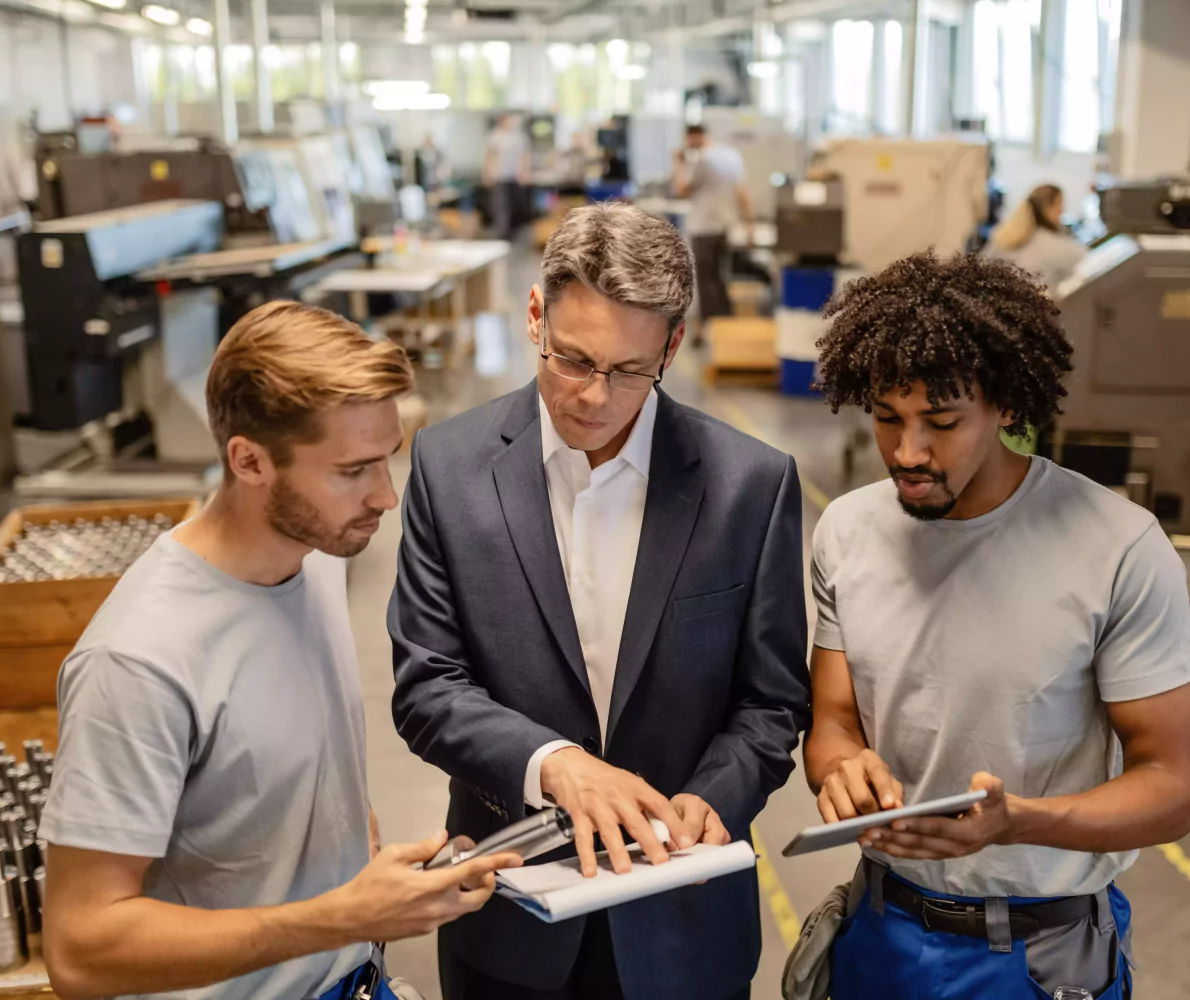
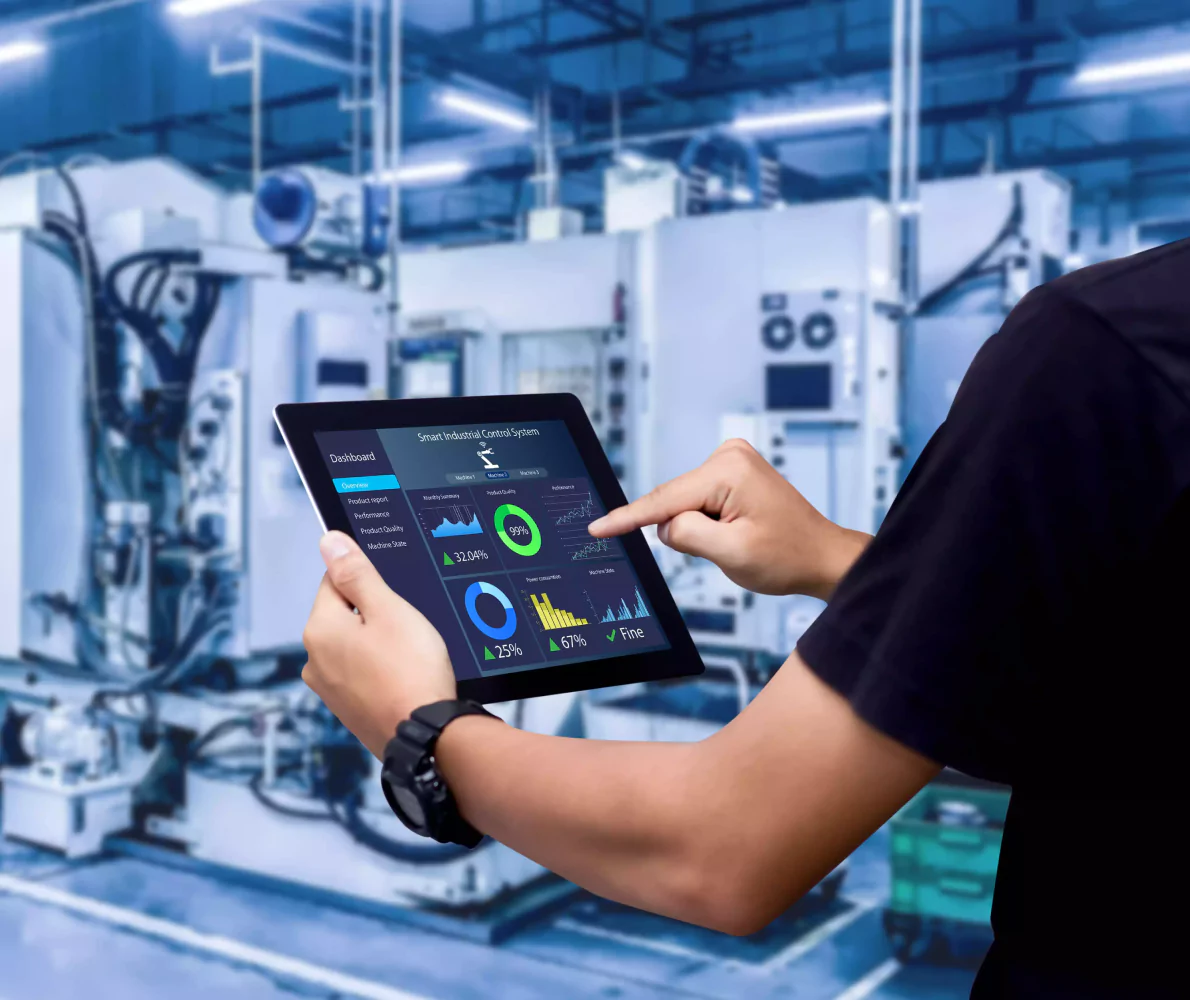
Integration Hurdles with Existing Manufacturing Processes
Integrating new technology into existing manufacturing processes can present many hurdles. From implementing new software systems to reconfiguring physical workspaces, many factors must be considered. Additionally, legacy systems may pose compatibility issues with newer technologies, leading to costly delays and decreased productivity. To overcome these challenges, it’s essential to thoroughly assess existing manufacturing processes and thoughtfully plan for integration before initiating any changes.
Workforce Adaptation and Upskilling Requirements
Rapid advancements in technology and automation from manufacturing technology trends have transformed the skillset requirements for the industry's workforce. Manufacturers must focus on upskilling their employees to meet the new demands of this technological evolution. Through workforce adaptation, manufacturers can ensure their organisations remain agile and can pivot their business strategies when needed. Focusing on the talent of their workforce can enable manufacturers to remain successful in an age of constant disruption.
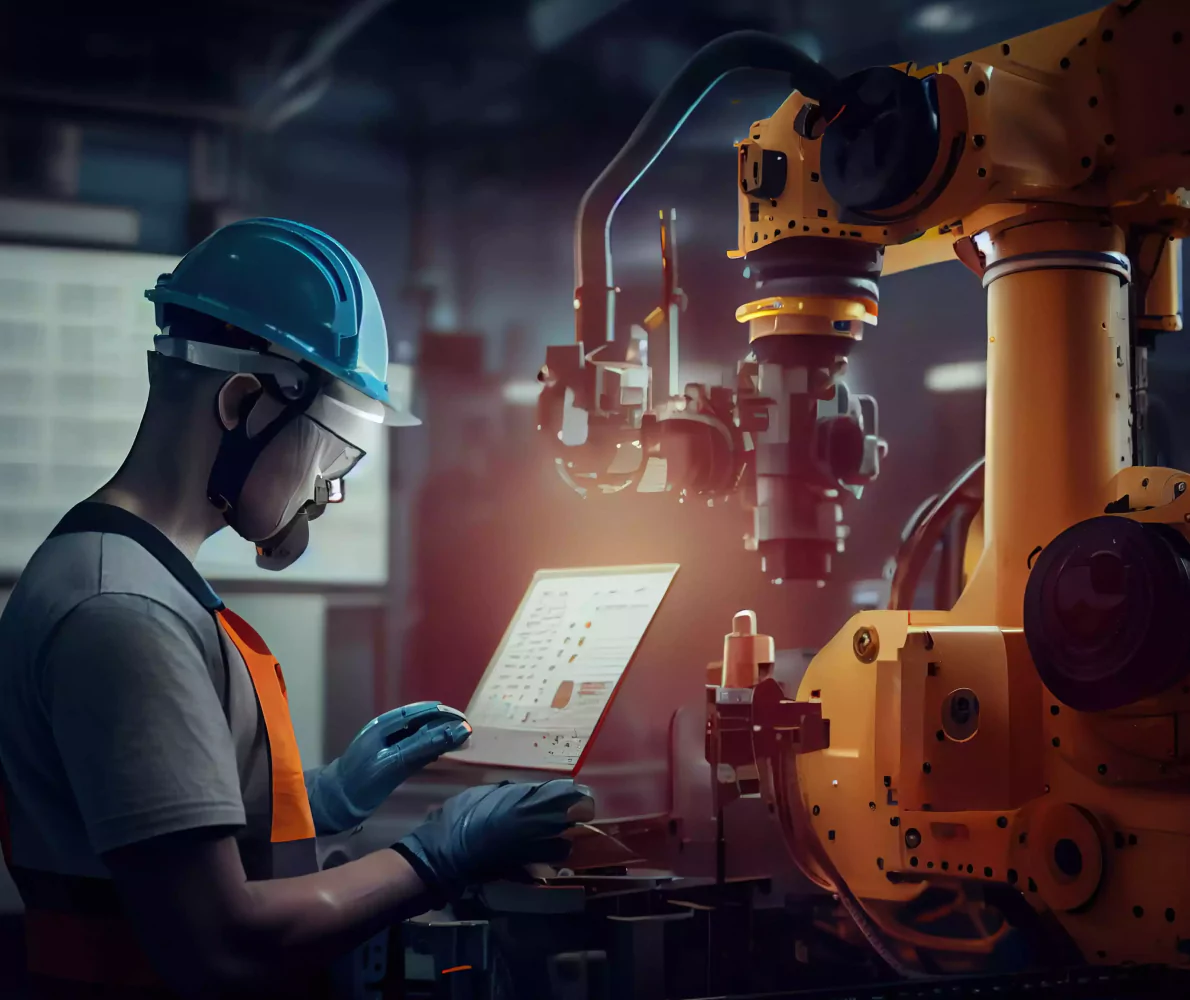
Market Analysis and
Industry Trends

As trends in the manufacturing industry continue to evolve, companies must understand the market dynamics and manufacturing sector trends that shape their landscape.
According to recent market analysis, there is a growing demand for sustainable manufacturing practices, innovative technologies, and digitalisation. Industry players are focused on reducing carbon footprint, improving supply chain management, and enhancing operational efficiencies through automation and robotics.

In addition, there is a shift towards circular economy models, where waste is minimised and resources are conserved. These manufacturing sector trends present challenges and opportunities for manufacturers, who must adapt and innovate to stay competitive in an increasingly complex and dynamic marketplace.

Customisation Options and Flexibility
The manufacturing industry is highly competitive, where flexibility is imperative to meet consumer needs and stay ahead of the curve. Adopting customisation options has proven to be a formidable solution for manufacturers seeking to balance flexibility and cost-effectiveness. This helps in tailoring products to specific audience needs rather than producing a standardised commodity. Research shows that the return on investment for customisation within the manufacturing factory setting is gradually increasing, thus presenting a unique opportunity for manufacturers to innovate and differentiate themselves in today's global market.

Digitalisation and Industry 4.0 Integration
Industry 4.0 technologies enable manufacturers to integrate their operations in exciting new ways, improving production efficiency, quality, and flexibility. Digitalisation means factory floor workers can collaborate seamlessly with machines and systems, gaining real-time insights into production and allowing businesses to optimise operations and reduce costs. As the manufacturing industry continues to adapt to Industry 4.0, businesses embracing digital transformation will likely experience significant advantages over their competitors.

Supply Chain Dynamics in MaaS
Supply chain dynamics are now more complex, with various factors, such as demand fluctuation, transportation, and raw material availability, impacting the manufacturing process. These dynamics have a fundamental effect on deadlines, product quality, and pricing. The use of technology, such as AI, blockchain and IoT, is helping to mitigate these challenges, leading to streamlined supply chains, better transparency, and cost-efficiency.
MaaS Applications Across Sectors

The modern trends in manufacturing impact a range of businesses and industries. For large corporations, MaaS provides the flexibility to outsource the production of specialised components or products without committing to long-term investments in production facilities. MaaS also offers small and medium-sized businesses access to cost-effective manufacturing solutions that were previously out of reach.

From automotive and aerospace to healthcare and energy, the applications of MaaS cut across various industries. This enables companies to optimise their operations, streamline their supply chains, and accelerate their time to market. By leveraging the newest technologies and expertise of the right service providers, companies can innovate, grow, and stay ahead of the competition.

MaaS in Automotive Manufacturing
MaaS enables automakers to outsource parts of their production process to specialised manufacturers, allowing for greater flexibility, efficiency, and reduced costs. With MaaS, automotive manufacturers can focus on their core competencies and improve their overall productivity.

Aerospace Industry Applications
MaaS encompasses an entire ecosystem of services, from design and prototyping to production and handling logistics. With advanced manufacturing technologies such as 3D printing and automated robotics, manufacturers can produce complex, high-quality parts to exact specifications. MaaS also enables quick response times, accelerating product delivery and reducing lead times. This innovation has transformed the aerospace industry and elevated the industry standard to new heights, improving efficiency, cost-effectiveness, and performance.

The Role of MaaS as An Integrator
Manufacturing as a service has evolved to the role of an integrator, acting as a bridge between original equipment manufacturers (OEMs) and MaaS providers. The integrator helps to optimise the manufacturing process by ensuring seamless communication, swift decision-making, and efficient risk management. Overall, the integration of manufacturing as a service can bring immense value to businesses seeking to adopt and succeed in this space.

Multimodal and Demand-driven
MaaS represents a shift in how manufacturers approach their operations. It allows businesses to outsource production to third-party suppliers to reduce costs, improve flexibility, and increase access to state-of-the-art equipment. Meanwhile, multimodal logistics uses a combination of transportation modes to optimise supply chain efficiency. Finally, demand-driven production is focused on creating products based on actual customer demand rather than sales forecasts. Together, these three approaches can transform manufacturing into a more agile and responsive industry capable of meeting the demands of today's globalised market.
Technological Enablers for MaaS

Technological enablers have redefined how we approach manufacturing as a service. By harnessing the potential of , cloud computing, IoT , and advanced analytics, manufacturers can now offer bespoke solutions that cater to the evolving needs of their customers.

The benefits of manufacturing technology trends have been manifold, including more efficient resource utilisation, increased productivity, and greater agility in absorbing market changes. Embracing these enablers allows manufacturers to streamline their operations and transform their operations' bottom line, making manufacturing smarter, faster, and more profitable.

Role of Cloud Computing in MaaS
Cloud computing enables manufacturers to access real-time data analytics, reduce downtime, improve productivity, and increase profitability. Cloud-based manufacturing as a service allows companies to eliminate upfront capital investments and reduce IT expenditure while providing flexibility and scalability to accommodate growth and changing business needs. As a result, manufacturers worldwide are increasingly adopting cloud computing, driving innovation, agility, and competitiveness.
Internet of Things and Sensor Technologies
As manufacturing increasingly embraces digital transformation, the convergence of IoT and sensor technologies has emerged as a game-changer. IoT connects machines, products, and people to the cloud, enabling real-time monitoring, data collection, analysis, and optimisation. Agile, responsive, and personalised manufacturing is now possible, unlocking new revenue streams and opportunities for optimising operations, products, and services.

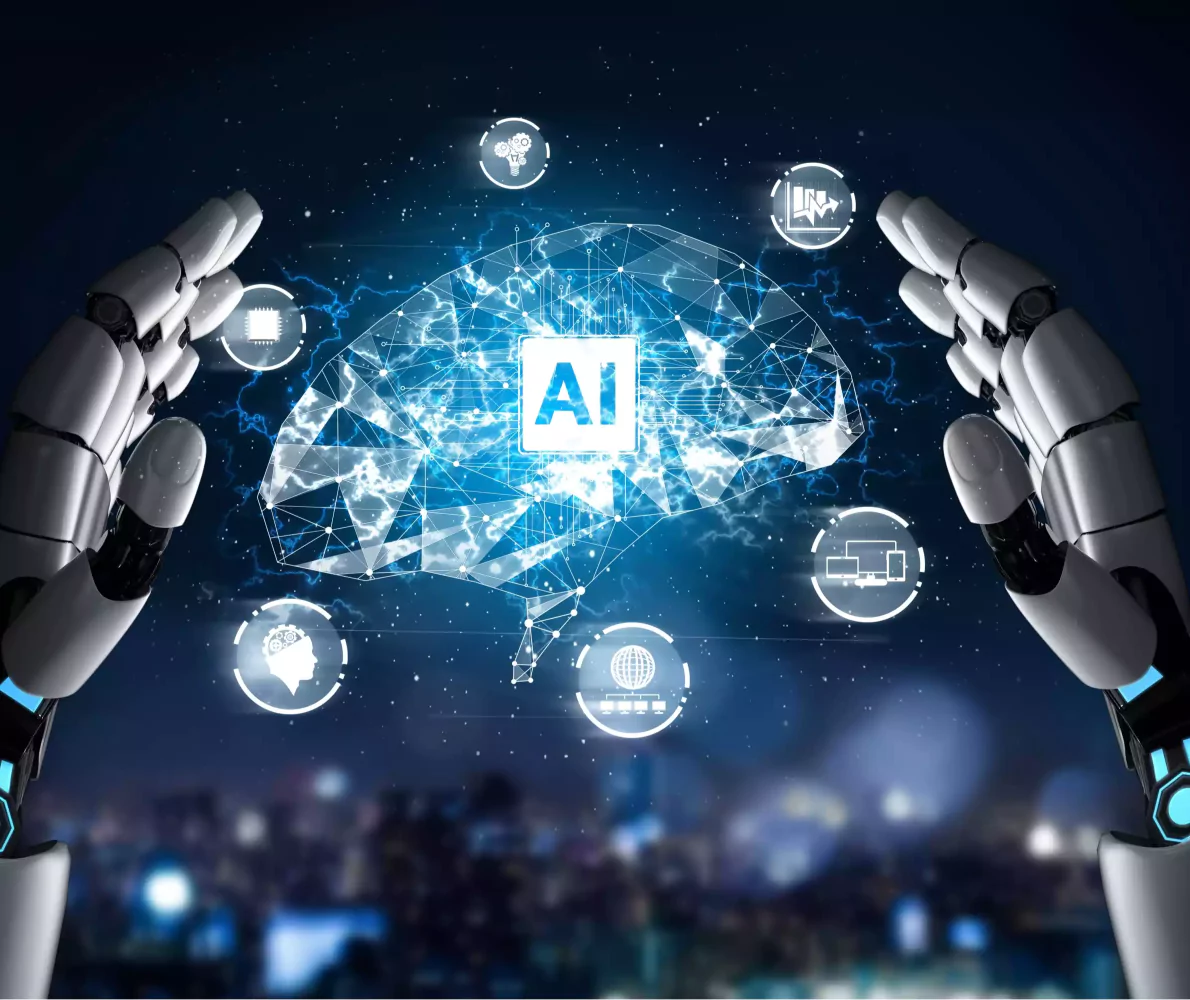
Integration of Artificial Intelligence and Machine Learning
With technological advancements, manufacturing services can now be tailored to meet specific customer requirements, improve production efficiency, reduce costs, and enhance product quality. AI and machine learning can enable predictive maintenance, forecasting, demand planning, and optimising energy consumption. By utilising AI and machine learning algorithms, manufacturers can further streamline their operations and ensure optimal performance.
Blockchain for Secure Transactions and Traceability
Blockchain technology is rapidly transforming the manufacturing industry, ensuring secure transactions and traceability of goods. A decentralised ledger of all transactions within the supply chain can verify the authenticity of parts, components, and finished products. This minimises the risk of fraud and increases transparency and accountability within the industry. Furthermore, blockchain technology enables real-time monitoring of the manufacturing process, facilitating quality control and reducing costs. Hence, Blockchain for Secure Transactions and Traceability in Manufacturing is becoming an essential service to meet the industry's evolving needs.

Future Prospects and Emerging Trends

MaaS is the future of the manufacturing industry, and this trend shows no signs of slowing down. In fact, the smart manufacturing market is projected to grow from $108.9 billion in 2023 to $241.0 billion by 2028 at a compound annual growth rate (CAGR) of 17.2% during the forecast period.

Likewise, Industry 4.0 technologies, such as industrial IoT, big data analytics, and artificial intelligence, have an essential role in driving efficiency and productivity within the MaaS ecosystem.
Detailed below are some of the top predictions for the future of MaaS.

Predictions for the Future of MaaS
As the industry evolves, many manufacturers are turning to MaaS. A recent report revealed that the market for MaaS is expected to grow at a CAGR of 24.16% between 2019 and 2025. The increasing demand for flexible manufacturing solutions, innovative technologies, and new business models drives this growth. Experts predict that MaaS will continue to shape the future of manufacturing, revolutionising traditional production processes.

Evolving Technologies and Innovations
As the industry continues to embrace the fifth generation of mobile data networks (5G), the manufacturing sector can reap the benefits of streamlined and efficient data collection and processing through Industrial Internet of Things (IIoT) devices such as smart machines and sensors. Augmented and virtual reality (AR/VR) are also set to revolutionise manufacturing processes, aiding in product design, production planning, enhanced worker abilities and immersive training. The potential for transformation in the industry is immense.

Sustainability and Green Manufacturing in the MaaS Context
As the world moves towards greener solutions, the future of sustainability and green manufacturing seems bright in the MaaS context. Rapid urbanisation has resulted in an increased demand for sustainable alternatives in the production and consumption of goods and services. The incorporation of data analytics and smart technology promotes efficient energy consumption, reducing carbon emissions and improving sustainability. The shift towards circular economy initiatives and green supply chain management is expected to further revolutionise the manufacturing landscape, paving the way for a more sustainable future.

Global Supply Chain Implications
The global COVID-19 pandemic has drastically impacted supply chains worldwide, causing businesses to reassess their resilience and agility. Going forward, companies can expect to see an increased emphasis on digital transformation, with technologies such as artificial intelligence and IoT playing a crucial role in streamlining operations and improving performance. Additionally, supply chain sustainability and ethical sourcing will likely become even more critical considerations for consumers, stakeholders, and government regulation. As such, businesses must remain adaptable and proactive in navigating the evolving challenges and opportunities of the global supply chain landscape.
Conclusion

The modern trends in manufacturing are poised to reshape the manufacturing industry by providing a more cost-effective, agile, and accessible way for companies to produce their products.
MaaS offers a compelling solution for businesses looking to reduce their capital expenditure on manufacturing equipment and facilities while still maintaining high levels of product quality and delivery speed. As the concept of MaaS continues to gain traction, we can expect to see more players enter the market and a wider range of services become available.

Industry experts predict that MaaS could disrupt traditional manufacturing models, replacing them with a more flexible and scalable approach that offers both service providers and consumers unlimited growth opportunities.
If businesses can embrace manufacturing technology trends, they can harness its potential to improve their competitiveness and gain access to new markets, customers, and revenue streams.
About Goodman Lantern

Goodman Lantern is a team of professional writers, editors and designers who specialise in diverse content niches. We specialise in creating B2B content that drives traffic and enhances conversion rates. Our flexible and adaptive team delivers high-quality content to meet your specific requirements, removing the limitations of time, skills, and network. Our goal is to be your thought leader in content creation, delivering seamless and expert solutions to all your content needs.
Our Clients Love Working With Us Because We Believe in Collaboration
At Goodman Lantern we’re all about building long-term, successful relationships with our clients. We take the time to get to know their business AND the people behind the brand. In true collaborative spirit, we do everything we can to tell your story and help your business grow.
“Goodman Lantern has an unparalleled level of skill and talent, coupled with a keen understanding of implementation.”
“Whenever we've provided feedback or suggestions they have always been receptive and open to making changes.”
“In marketing, content generation is one of the biggest challenges. I’ve been using a large freelancing network, and I did have trouble finding the right talent to produce content for us. Then I got to know Goodman Lantern. We started to do business together, and it seemed Raj understood my requirements very well. He delivered quality content that met my expectations.”
Hundreds of Businesses














